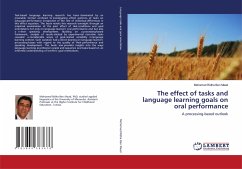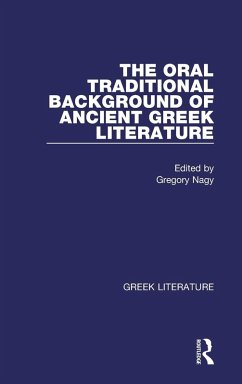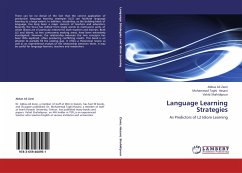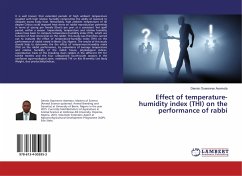
The effect of tasks and language learning goals on oral performance
A processing-based outlook
Versandkostenfrei!
Versandfertig in 6-10 Tagen
52,99 €
inkl. MwSt.

PAYBACK Punkte
26 °P sammeln!
Task-based language learning research has been dominated by an invariable format confined to investigating effect patterns of tasks on language performance irrespective of the role of individual differences in this effect equation. The book revisits this research oversight through an empirical examination of the joint effect of task conditions and goal orientations not only on language learners' oral performance and but also on their speaking development. Building on a processing-based framework, analysis of results elicited by experimental narrative tasks revealed a considerable scope of goal...
Task-based language learning research has been dominated by an invariable format confined to investigating effect patterns of tasks on language performance irrespective of the role of individual differences in this effect equation. The book revisits this research oversight through an empirical examination of the joint effect of task conditions and goal orientations not only on language learners' oral performance and but also on their speaking development. Building on a processing-based framework, analysis of results elicited by experimental narrative tasks revealed a considerable scope of goal-related variability in language learning context. Such variation had a direct bearing on language learners' processing biases with regard to the quality of their performance and speaking development. The book also provides insights into the ways language learning practitioners grade and sequence oral tasks based on an informed understanding of learners' goal orientations.












